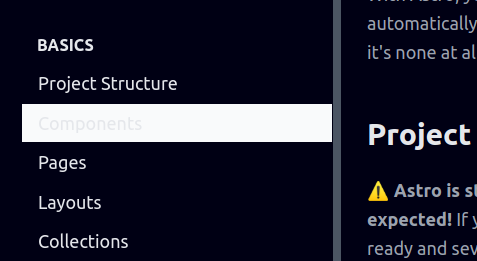To all who come to this happy place: welcome.
This is the repo for docs.astro.build. This repo contains all the source code we use to build our docs site.
Astro is an all-in-one web framework for building fast, content-focused websites. We want everyone to be successful building sites, and that means helping everyone understand how Astro works.
You can also help make the docs awesome. Your feedback is welcome. Your writing, editing, translating, designing, and developing skills are welcome. You being a part of our community is welcome.
You can learn more about Astro, get support, and meet other devs in our Discord community.
Is something missing? Is something confusing? Is something wrong?
Creating a new Issue puts a problem on our radar!
See if your issue has already been reported, and if not, create a new one.
Could something be better? Want to share an idea with us?
Discussions are threads where you can offer feedback on things that might not exactly be problems to be fixed but are ideas to be explored.
Join the Docs Discussions where we brainstorm, ask questions, share hopes and dreams...
Did you find a typo, a broken link, or another item with an obvious quick fix?
If you can see what the problem is, and you know how to fix it, then you can make a PR (pull request) with the change and contribute to the docs repo yourself.
Want to make a larger contribution? Please see CONTRIBUTING.md first!
Speak another language natively?
Join our i18n gang on Discord or jump into the PRs to help with reviewing existing draft translations!
Check out the dedicated i18n guide for more details.















